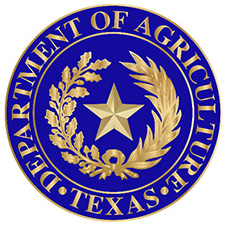Covid cases in meatpacking counties were 10 times those in other rural counties
During the first wave of the coronavirus pandemic, rural meatpacking counties had infection rates 10 times higher than rates in other rural counties, said the USDA on Thursday. And despite improvements, the Covid-19 rate in the 49 U.S. counties that rely on meat plants for jobs remains somewhat higher than in the rest of rural America as the disease surges again.
Farmers, advocates concerned about Vilsack’s record on dairy issues
Some dairy farmers and advocates are worried that president-elect Joe Biden’s pick for agriculture secretary, Tom Vilsack, will do little to address their concerns about issues like consolidation, farm bankruptcies, and low milk prices. Critics are especially concerned about how Vilsack’s years running a dairy industry trade group will affect his policy making approach.
Report calls for farmland access for young and people of color
The main obstacle preventing a younger generation from entering farming is a lack of access to land, the National Young Farmers Coalition said in a recent report that advocates for programs that would advance a new generation of farmers and promote racial equity in the sector. “Access to land is the number one barrier facing aspiring farmers today, and this barrier is even greater for farmers of color,” said the director of the group’s Land Access Program.
Climate change could accelerate soil erosion
U.S. cropland could lose two inches of soil nationwide by 2035 if climate change delivers its expected droughts and floods, said the Union of Concerned Scientists on Thursday. In a report, the group recommended such steps as crop insurance discounts for farmers who adopt practices that reduce erosion and improve soil health.
Today’s Quick Hits
Pesticides near schools, parks, homes: Air sensors in central Illinois detected the presence of pesticides, including atrazine and 2,4-D, that apparently drifted from farm fields to land near schools, parks, and homes where vulnerable populations live. (Midwest Center for Investigative Reporting)
Desert locusts swarm again: The FAO is seeking $40 million in donations for surveillance and control of a new generation of desert locusts threatening food supplies in Ethiopia, Kenya, Somalia, Sudan, and Yemen. (FAO)
Biden makes historic nominations: President-elect Joe Biden nominated New Mexico Rep. Deb Haaland to be interior secretary. She would be the first Native American to serve in a presidential cabinet. Biden also chose North Carolina environmental regulator Michael Regan to be the first Black to head the EPA. (Washington Post)
Hazard pay for California grocery workers: The Long Beach City Council voted unanimously to draft an ordinance mandating paying grocery workers an additional $4 an hour for the next four months because of the pandemic. Separately, the Los Angeles City Council is considering a motion for a $5-an-hour raise for workers at grocery chains with at least 300 employees. (Los Angeles Times)
Hunger increasing: In a recent Census Bureau survey, more than 27 million adult Americans, or 13 percent, said they sometimes or often did not have enough to eat in the previous seven days, an increase of 5 million from August. (Center on Budget and Policy Priorities)











